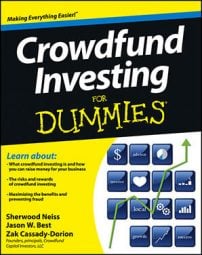If you miss your crowdfunding target despite all your best efforts, you’re going to be hugely disappointed. After all, failing to meet your target means that you get zero dollars for your efforts. (Crowdfund investing has an all-or-nothing provision so that investors who sign on early in the campaign don’t find themselves funding a project that’s a fraction of what was promised.)
What’s your first step when facing such a disappointment? Take a couple days off and recharge. Chances are, you’ve been running hard and fast on your campaign for 60 to 90 days and working hard on your business idea for a lot longer than that. Take some time to relax, reassess, and reduce your stress.
Do not let yourself fall into a deep depression over this one failure. Almost all successful entrepreneurs have failures. In fact, in the Silicon Valley/San Francisco area, many angel investors and venture capital firms are hesitant to invest in someone who has never experienced failure.
People tend to think of failure only as a negative experience, but it shouldn’t be.
How do you make your campaign failure a constructive one? Start by evaluating what happened. Ask yourself questions such as these:
What are the lessons you can draw from this experience?
What went right?
What could have gone better?
What will you do differently next time?
Try to be objective in your answers, and ask a good friend or business advisor/mentor — someone who tends to be very honest — to discuss what happened as well.
Only about 40 percent of reward-based (perk-based) crowdfunding campaigns succeed. And because investors are considering a financial return, crowdfund investing may succeed at a similar or even lower rate. If you were unable to reach your goals the first time around, you can take steps to ensure that you have another chance at bat when you’re ready.

